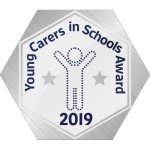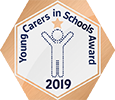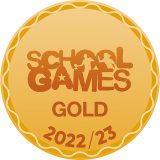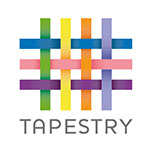“If you want to be a writer, you must do two things above all others: read a lot and write a lot.” – Stephen King
“There is something delicious about writing the first words of a story. You never quite know where they’ll take you.” – Beatrix Potter
“You can make anything by writing.” – C.S. Lewis
Our Vision
At Kessingland C of E Primary Academy we believe that the purpose of education is to further social justice, to deliver a curriculum that includes powerful knowledge which takes pupils beyond their everyday experience. Our vision is deeply Christian, with the golden thread of Jesus’ promise of ‘life in all its fullness’. We believe that everyone is a child of God and should be supported to flourish and reach their full potential. We are committed to developing the whole child and have high aspirations for everyone to be the best they can be.
Writing
Aspire: We aim to provide experiences which show children the wide range of possibilities available for their future. We want them to be challenged to imagine possibilities beyond their own experience.
Believe: We promote ambition, high aspirations and foster pupils’ capacity to see the possibilities within the world today. Championing a Growth Mindset, pupils believe in the power of ‘yet’.
Challenge: We strive for children to learn skills alongside knowledge, ensuring that all pupils have a secure platform to reach the next step in their learning journey and their full potential – ‘With God, all things are possible’ (Matthew 19:26).
Intent
Writing is a statutory entitlement for our pupils and accessible to all.
At Kessingland C of E Primary, we believe that great writers emerge from great readers, so much of our wider curriculum is built around quality fiction and non-fiction.
We intend to give pupils the opportunity to: emulate quality authors in their writing; use the writing of quality authors as an inspiration or stimulus for their own work; r eflect on what they have read in their writing.
In writing lessons, pupils are encouraged to identify as writers to develop their own authentic writing voices, experiencing how through writing they can communicate with others and express themselves. Through a text-rich writing curriculum, we will expose children to new worlds, experiences and ideas, expanding their horizons. Our choice of texts will both value and confirm students’ linguistic, cultural and social backgrounds, and introduce them to cultural and social contexts beyond those they are familiar with. We will make links to other subjects and provide meaningful contexts and purposes for writing and will enrich their learning with visits from professional writers.
We intend to enable all pupils to grow and develop their own authorship throughout their time at Kessingland C of E Primary Academy. We understand the vital importance of writing (and spoken communication) in providing children with a voice, so that they can share their ideas with the world. We aim that all pupils leave our school well-equipped for secondary education, with the ability to write effectively in a range of fiction genres and non-fiction text types. We understand the duality of writing: it is an invaluable life skill, yet it is also a means of self-expression.
Implementation
To ensure high standards of teaching and learning in Writing, our curriculum is progressive throughout the whole school.
Key Concepts: Grammar, Spelling, Punctuation, Language techniques, Structure and layout, Writing stages and sequencing and Spoken Language.
Domains of Knowledge: Fiction, Non-Fiction and Poetry.
EYFS: We believe that communication and language, with opportunities to explore reading and writing underpins children’s future learning. In EYFS, children are given a wealth of opportunities to develop early language and literacy skills, using daily phonics and writing sessions. Pupils’ interests in literacy are stimulated by play, story, songs and rhymes, and lots of opportunities are provided to talk about experiences and feelings. All children develop gross and fine motor skills through play and handwriting activities.
KS1: In KS1, pupils are prepared for the writing process through speaking and listening activities such as role-play, pair talk, drama and hot seating. Children continue to be taught phonics through Read Write Inc. and grammatical awareness is developed and led by quality texts. In KS1, pupils write personal responses to subjects and use their knowledge, opinions and own imaginings in their writing: they learn that being a writer gives them the ability to represent their ideas creatively. Working walls and washing lines are used to support pupils with their writing, and teachers will think out loud, edit and demonstrate how and why writing is structured. We aim for children to be proud of their work and children are taught how to form letters in a cursive style.
KS2: In KS2, pupils are exposed to a range of text types and genres to scaffold writing and promote sustained composition. The units of work centre on engaging, vocabulary-rich texts, and this allows for great cross-curricular knowledge. The use of example texts, vocabulary and contextualised grammar, spelling and punctuation enable children to develop their own writing process. This gives them confidence and knowledge of themselves as writers. Our writing projects are purposeful because they involve a future audience and this motivates pupils to make their writing the best it can be. As children become increasingly knowledgeable writers, they are able to give peers high-quality feedback through pupil conferencing and responsive editing lessons. Although punctuation, spelling and grammar is part of every unit of work, it is also taught outside of writing lessons.
Enrichment: The school’s Writing curriculum is enriched through our sustained partnerships with Kessingland Library and local authors. Visiting authors, World Book Day events and thematic days support a love of writing across the curriculum. Pupils are encouraged to have personal project books and work on their own compositions at home. Many of our children’s writing has been published through entering competitions such as Young Writers. Parents and carers are invited to listen to their child’s writing through Parent Cafes and celebration events such as Wonder Writers.
Impact
The Writing curriculum builds towards five End Points, describing what we want our pupils to achieve in each of the disciplines by the end of Year 6:
End Point 1: Develop an enduring appreciation and enjoyment of literature, with knowledge of a wide range of texts, styles and genres that are drawn on independently in writing.
End Point 2: Fluently and confidently talk about writing through discussion, debate, performance and review of others work.
End Point 3: Craft texts effectively and imaginatively with the reader in mind; controlling their writing selecting and adapting tone, style, ambitious vocabulary and register different forms, purposes and audiences.
End Point 4: Skilfully control the overall structure of their work, using paragraphs and grammatical features to provide coherence.End Point 5: Achieve accuracy in spelling and handwriting, consistent use of standard English and a full range of punctuation for clarity and emphasis.
Assessment
Through the teaching of writing, our aim is for our pupils to become confident and capable writers by the end of KS2. Every unit of work gives children the opportunity to write for a purpose and complete assessed pieces of writing.
Pupils will make good progress from their own personal starting points, enabling the majority of our pupils to achieve or exceed their expected targets when undertaking statutory assessments. We hope that every pupil will have artefacts and memories of the impact their published and performed writing has had on the local community and beyond. Children will have their own established writing process, strategies and routines for producing successful, meaningful and accurate writing.












